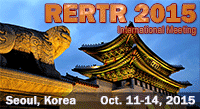Abstracts and Available Papers Presented at the
1999 International RERTR Meeting
TRANSPORTATION
OF FAILED OR DAMAGED
FOREIGN RESEARCH REACTOR SPENT NUCLEAR FUEL
Mr. Charles E.
Messick
Program Manager
Foreign Research Reactor Spent Nuclear Fuel Program
Spent Fuel Management Division
United States Department of Energy
Savannah
River Site
Ms. Tracy P. Mustin
Program Manager
Foreign Research Reactor Spent Nuclear Fuel Program
Office of Nuclear Material and Facility Stabilization
United States Department of Energy
Dr. Charles D.
Massey
Manager, Nuclear Materials Management Department
Sandia National Laboratories
ABSTRACT
Since initiating the Foreign Research Reactor Spent Nuclear Fuel (FRR SNF) Acceptance Program in 1996, the Program has had to deal with difficult issues associated with the transportation of failed or damaged spent fuel. In several instances, problems with failed or damaged fuel have prevented the acceptance of the fuel at considerable cost to both the Department of Energy and research reactor operators. In response to the problems faced by the Acceptance Program, DOE has undertaken significant steps to better define the spent fuel acceptance criteria. DOE has worked closely with the U.S. Nuclear Regulatory Commission to address failed or damaged research reactor spent fuel causing a degradation of the fuel assembly exposing fuel meat and to identify cask certificate issues which must be resolved by cask owners and foreign regulatory authorities.
The specific issues and implementation challenges associated with the transport of MTR-type FRR SNF will be discussed. The information presented will include U.S. Nuclear Regulatory Commission regulatory issues, cask certificate issues, technical constraints, implementation status, and lessons learned. Specific information will also be provided on the latest efforts to revise DOE’s Appendix B, Transport Package (Cask) Acceptance Criteria. The information presented in this paper will be of interest to foreign research reactor operators, shippers, and cask vendors in evaluating the condition of their fuel to ensure it can be transported in accordance with appropriate cask certificate requirements.
![]() PDF version available
PDF version available
DOWNLOAD full paper in PDF format.
Contact:
Chuck Messick
DOE Program Manager
DOE Savannah River Operations Office
P.O. Box A
Aiken, SC 29802 USA
Phone: (803) 958-4520
Fax: (803) 557-3996
E-mail: [email protected]




